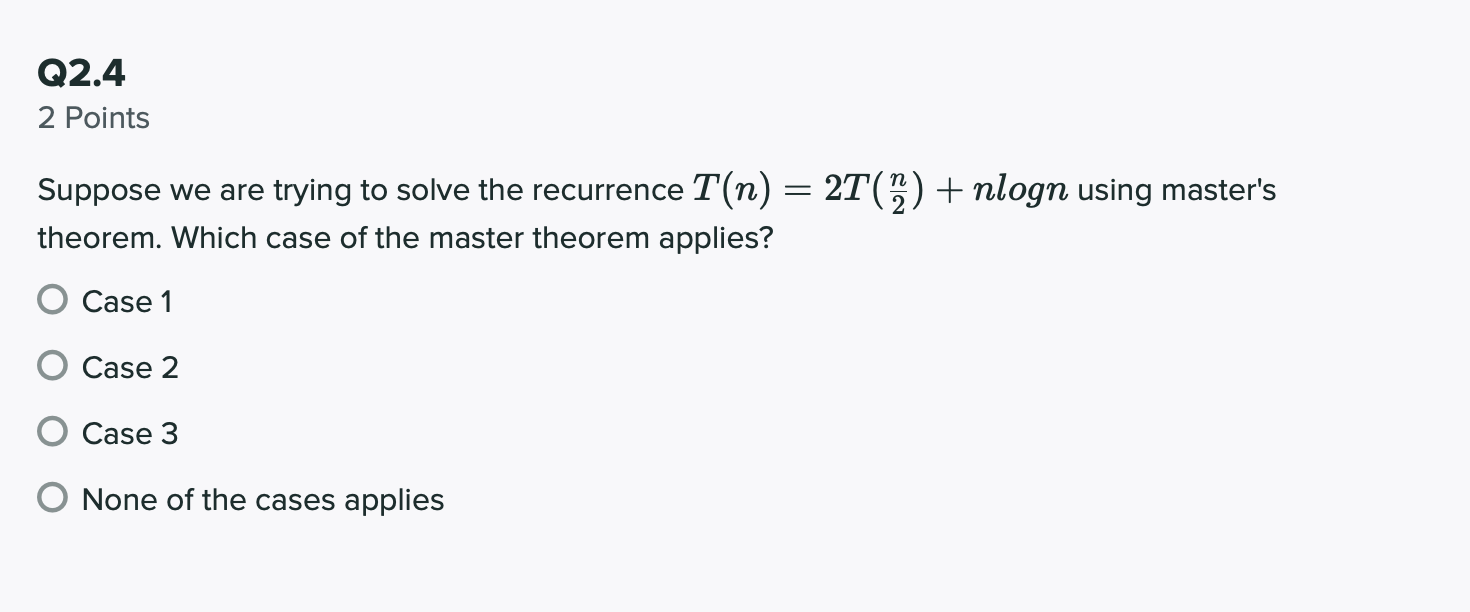Answered step by step
Verified Expert Solution
Question
1 Approved Answer
The three cases defined in the master theorem are: Case 1: If f(n) = O(nloga-C) for some constant e > 0, then T(n) O(nlogoa). Case


Step by Step Solution
There are 3 Steps involved in it
Step: 1

Get Instant Access to Expert-Tailored Solutions
See step-by-step solutions with expert insights and AI powered tools for academic success
Step: 2

Step: 3

Ace Your Homework with AI
Get the answers you need in no time with our AI-driven, step-by-step assistance
Get Started


